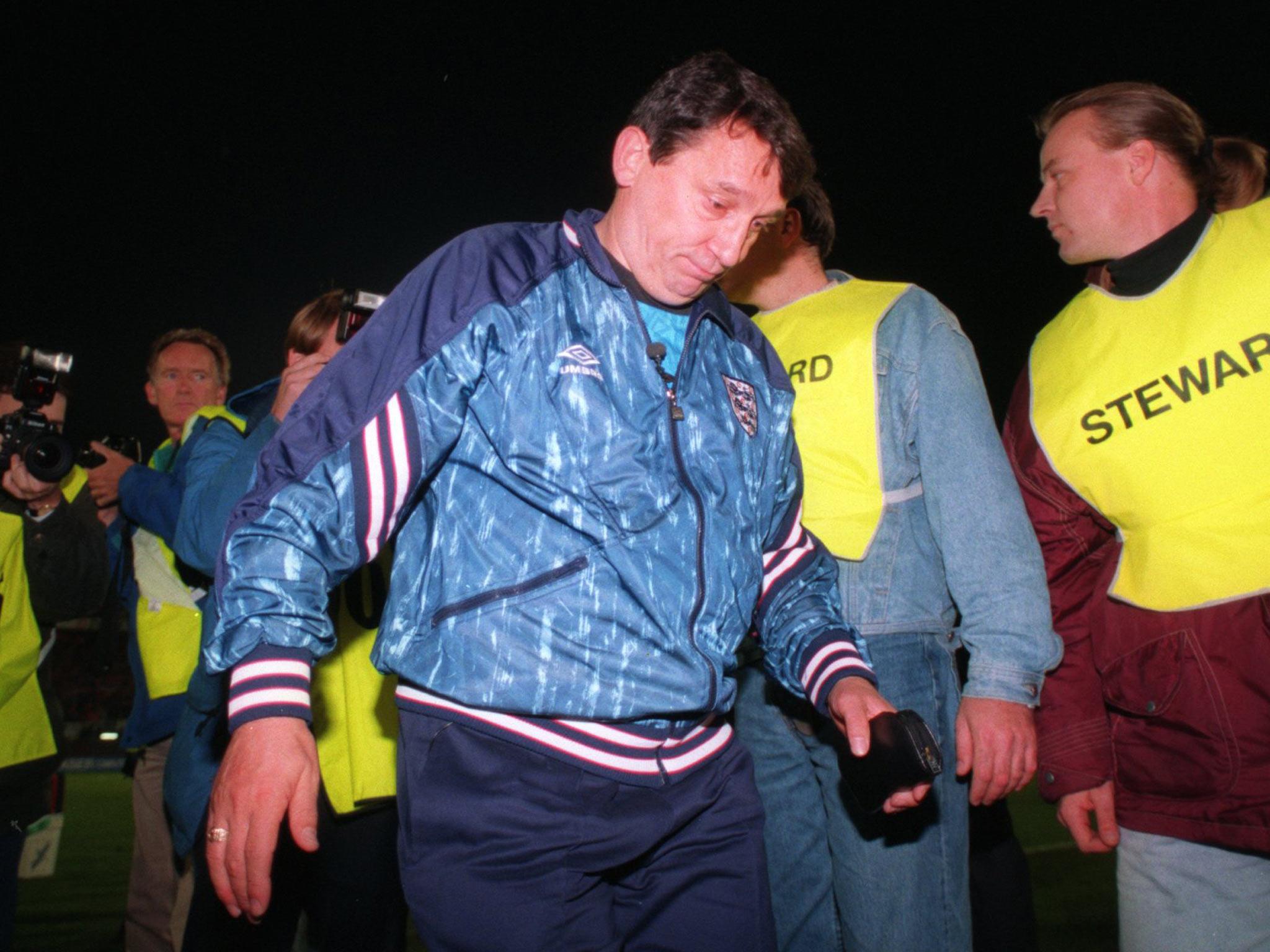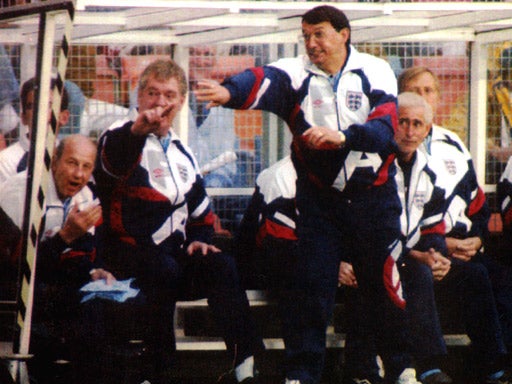Graham Taylor rejects claims FA told him not to pick 'too many black players' during time as England manager
Former national team manager dismisses book’s allegation over comments at a lunch as ‘nonsense’

Your support helps us to tell the story
From reproductive rights to climate change to Big Tech, The Independent is on the ground when the story is developing. Whether it's investigating the financials of Elon Musk's pro-Trump PAC or producing our latest documentary, 'The A Word', which shines a light on the American women fighting for reproductive rights, we know how important it is to parse out the facts from the messaging.
At such a critical moment in US history, we need reporters on the ground. Your donation allows us to keep sending journalists to speak to both sides of the story.
The Independent is trusted by Americans across the entire political spectrum. And unlike many other quality news outlets, we choose not to lock Americans out of our reporting and analysis with paywalls. We believe quality journalism should be available to everyone, paid for by those who can afford it.
Your support makes all the difference.The former England manager Graham Taylor has told The Independent that he categorically denied claims the Football Association tried to limit the number of black players he should use in the national team.
Taylor dismissed the claim, in a book by writer Emy Onuora, as “nonsense”, said that “it simply did not happen” and hit out at the publishers of the book, Pitch Black, for not consulting him about the claim. “I can’t remember everything that happened but I would have remembered being told by the FA not to pick too many black players,” Taylor said.
“If the FA came to me and said ‘Not too many black players,’ well I might have resigned and told the media why. I never had interference from the FA on any criteria in my team selection. I am very annoyed about it. They did not even have the courtesy to tell me this was in a book. That should makes you suspicious to start with.”
But Onuora’s suggestion may not entirely be a surprise to Taylor. At least one journalist made strenuous efforts to reach him in December 2004 after a 10th anniversary lunch for the Kick it Out anti-discrimination organisation – attended by Taylor – left some guests convinced that unnamed senior FA officials had discouraged him from picking too many black players, when he managed England, between 1990 and 1993.
The Independent’s investigations established no evidence last night that Taylor had shared the allegation with any senior anti-discrimination campaigners during the function, at Watford’s Vicarage Road ground. Piara Powar, director of Football Against Racism in Europe, who was at the lunch in his role as a senior Kick it Out executive, said Taylor had not made the suggestion to him. Lord Herman Ouseley, the Kick it Out founder who was also present that day, has no recollection of Taylor making the comment, either.
But Powar said that the guest speaker at the lunch, the former Birmingham City player Richie Moran, has always been adamant that Taylor did share the information with him. Moran, who is the source of the allegation in Onuora’s book, is expected to expand on his claims at the launch of the book tomorrow. He quit football because of the racial abuse he suffered.

Moran was not the only one to have left the lunch with the distinct view that there had been a direct approach to Taylor by FA officials. But The Independent understands that attempts to contact Taylor after the event elicited no returned calls. It was suggested to at least one of those investigating the story at the time that any public discussion of the issue “would not happen”.
Taylor was known both then and now as an ardently anti-discriminatory and the book does not suggest that he acted on any such alleged advice.
He had a close relationship with John Barnes, whom he helped develop at Watford. As England manager, he twice selected six players in his squads and used at least one in each of his 38 starting line-ups.
Anti-racism campaigners saw a significance in the fact that he was one of the few coaches who actually attended their 10th anniversary lunch.
The FA indicated last night that the unsubstantiated nature of the allegations – and Taylor’s insistence that they are inaccurate – made any investigation of them difficult. But if witnesses to any such request have evidence, the governing body is ready to submit them to rigorous investigation.
Taylor added: “The whole idea is news to me. You only have to look at my record at club and international level to see the colour of someone’s skin doesn’t matter to me. I was the England manager who made Paul Ince the first black player to captain England.”
Join our commenting forum
Join thought-provoking conversations, follow other Independent readers and see their replies
Comments